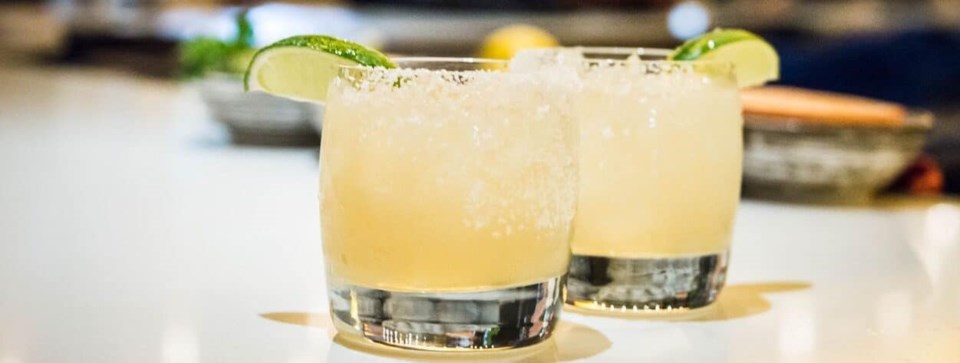At the very beginning of the quarantine, when restaurants first closed, a McKinney restaurant owner took stock of the meal kits he was planning to create, the staff he would have to furlough, and the fully stocked bar that very soon, would be gathering dust. While discussing the inevitability of layoffs, lost income, and the possible failure of the restaurant entirely, he said offhand, “If only I could find a way to bottle and sell a cocktail, I would.”
It was a pipe dream. The Texas Alcoholic Beverage Commission has always prohibited restaurants from selling alcohol to-go.
When COVID-19 hit, and restaurants closed their doors, Gov. Greg Abbott and the TABC authorized a temporary waiver that allowed restaurants with a mixed-beverage permit to sell beer, wine, or mixed drinks for delivery with a food purchase. It was something between a consolation prize and an extra boost when they couldn’t offer normal service. This kind of allowance was unprecedented, but now it looks like it might be permanent.
“From what I hear from Texans, we may just let this keep on going forever,” Abbott announced in an April 28 tweet.
Apparently, alcohol to-go has been received very well by Texans.
At first, TABC stated they would allow restaurants to keep selling alcohol to-go, simply because they couldn’t open their restaurants. Now, considering that as of today Abbott’s allowing them to operate at 25 percent capacity, TABC decided to continue to allow it. One of the reasons could be because some restaurants are so worried about whether or not Abbott’s new restriction means they can turn a profit, that they have elected not to open at all, and to continue only serving delivery and curbside pickup.
For Tanner Agar, a co-owner of Rye restaurant in downtown McKinney, 25 percent capacity is not worth reopening, so being able to serve cocktail kits and meals to go has been critical for him to keep the doors open. Customers have responded very well to their cocktail kits, which offer daiquiris, painkillers, and margaritas.
“If there will be people in our space at all, we need to know we can serve them safely,” Tanner says. “And we’re questioning whether serving those 10 people is going to be viable. Unfortunately, it’s nice to say 25 percent of my team can come back, but people don’t want to work for 25 percent. I have to pay more than 25 percent of my rent.”
Rye would rather continue as they are until they can open at at least 50 percent capacity.
The TABC is still reviewing Abbott’s report and say they are working with his office on how to regulate the sale of alcohol in this strange time. But they will continue to allow restaurants to utilize expanded to-go and delivery options created during the quarantine.
Most restaurants would probably be happy to continue selling alcohol to-go, and it’s a surprising win for North Texas, where our relationship with alcohol has been notoriously tricky and riddled with conflict. For example, there has been a lawsuit between TABC and local breweries over the fact that distilleries and wineries can sell their products to-go, but breweries can’t. In fact, in 2015, Deep Ellum Brewing Co. and Grapevine Craft Brewery sued TABC, a case which they lost. In a 2016 D CEO article, Gary Humble, the founder and CEO of Grapevine Craft Brewery, called the law, which favors distributors over brewers, “un-American.”
A couple of years earlier, when Plano allowed liquor stores in city limits, there was widespread interest—and outcry. While many were thrilled to be able to get liquor without leaving the city for it, others protested that liquor stores would bring crime. It threatened Plano’s suburban charm.
The controversy stretches back further to 2003, when The New York Times wrote about the confusion. At the time, in Plano, stores were only allowed to sell beer and wine in 60 percent of the city and the 126 restaurants that sold drinks required customers to sign a form stating that they would “join” the establishment’s “private club.”
Now in 2020, it’s a much more relaxed world, and one more restriction seems to be breaking down: alcohol is now being sold to-go in restaurants across North Texas.
Breweries, on the other hand, still can’t sell beer for off-premise consumption. It’s no wonder so many distilleries and breweries started making hand sanitizer during shelter-in-place.
The rules for selling alcohol during phase one of the reopening might be the most relaxed our alcohol laws have ever been. Of course, only those dine-in restaurants who make more than 51 percent of their money on food are allowed to reopen at all. Pubs, bars, and private clubs have been unable to offer any service to customers in two months.
Unfortunately, they have to wait a little longer. They “may be included” in the second phase of Abbott’s Open Texas plan in mid May. Tap and tasting rooms are only allowed to reopen if they operate a restaurant with permanent food service.
Until then, there is alcohol to-go to console us.




